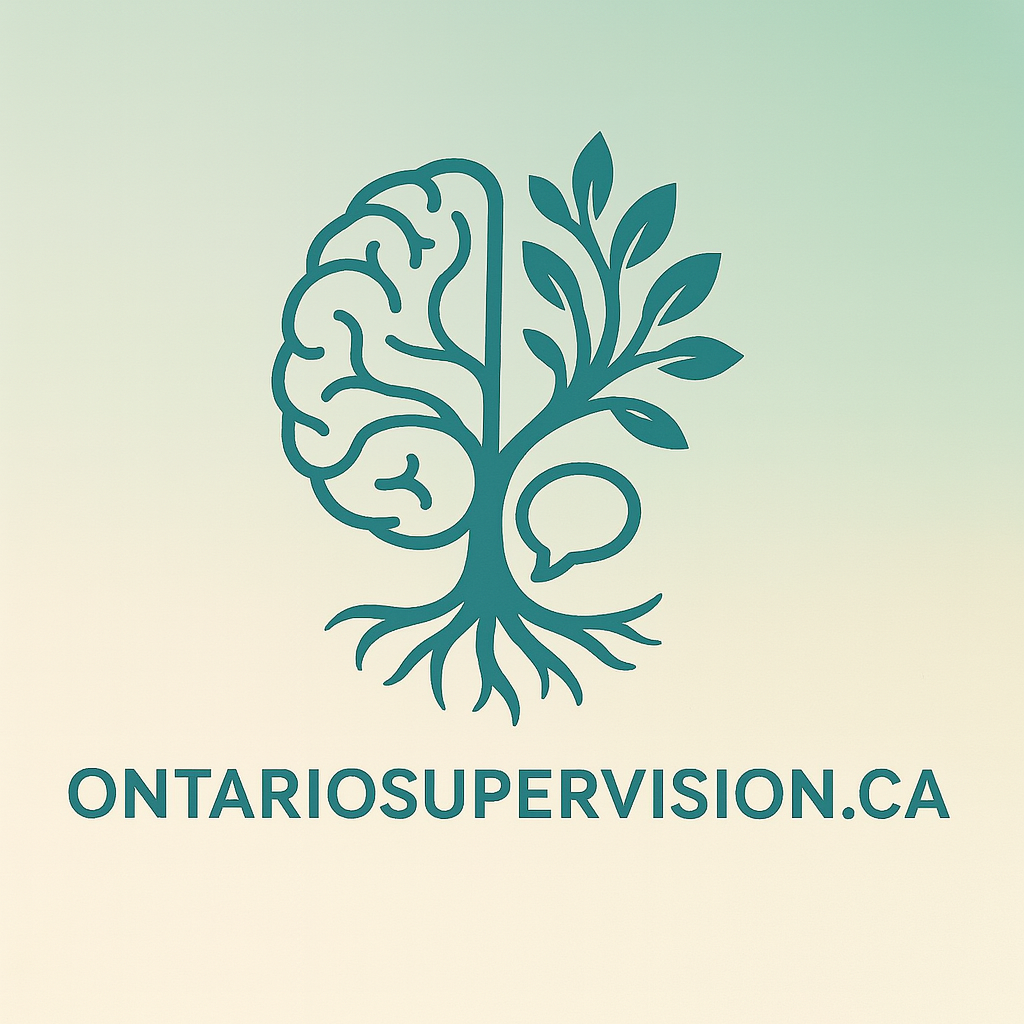I’m Done School. Why Do I Need Clinical Supervision?
I’m Done School: Why Do I Need Clinical Supervision?
You got into this field because you have a knack for connecting with others, making people feel heard and problem-solving. Now that you are done with school, you just want to get to work. It’s understandable, we were all eager to start when we were finally cleared to work in a helping profession.
You might be frustrated that even though you have finished school, you still need to be supervised. It’s important to remember that it’s not because you haven’t proven yourself and certainly not because you’re not a great therapist.
Ontario Clinical Supervision
Clinical supervision is the glue that holds our profession together. It’s what keeps us from ethical lapses, it ensures our personal and professional boundaries are well-maintained and most importantly, it helps to ensure a long and healthy career.
Instead of thinking of your clinical supervisor in Ontario as someone in the way of your professional goals, view them as someone who can help you achieve those very same goals. As with anything in life, if we go into supervision expecting to be let down, self-fulfilling prophecy psychology dictates that that is what will happen. However if we enter a supervisory relationship from the standpoint of ‘what can I learn?’ it all of a sudden becomes a very valuable component of your growth as a therapist.
Humility is Key in Clinical Supervision
It’s important to be humble as therapists. It’s easy to think that we know better than our clients or that if they just followed our advice better, their lives would improve. But imposing our own ideals onto our clients is a common topic in clinical supervision in Ontario for many reasons. In the end, it doesn’t matter what we think the client should do. What matters is what the client thinks they should do and even more importantly, what they believe they have the capacity to do. We aren’t here to provide answers. We are here to help our clients find their own answers.
Think of yourself as a tour guide. You are a guide to your clients deepest, most heartfelt emotions. You are the guide to their feelings of sadness, emptiness, loneliness, depression. We aren’t there to make those emotions go away. We are there to make it ok for the client to have those emotions and to help them understand that they will pass and the best ways to cope with them in the moment.
Many therapists get caught up in the mental trap that they must ‘fix’ their clients' problems or if ‘I just thought about it enough, I would find a solution for them.’ But doing so brings us away from our purpose. We do not necessarily know better. We do not necessarily know what the best option is. But we do know how to support people as they make difficult choices.
It takes a lot of pressure off the back of a therapist once they realize they are not there to solve the client’s problems. If that was the job, most of us would be out of work by this point anyway. Solving problems is a uniquely personal experience that will vary widely with each and every client and will be dictated by their own very personal life experiences.
What if the Client Expects Me to Solve Their Problems?
Many new therapists struggle with this. ‘If I don’t solve the clients problems in the first session, why will they come back?’ The reason they will come back is because when they were with you they felt heard, they felt validated and they felt understood. They aren’t coming back because you magically fixed all of their problems in one day.
Of course, people do come to therapy with the expectation that the therapist will solve their issues. But this is a quick conversation that you should feel comfortable having: I am not here to solve your problems for you, but rather am here to help you to learn how to solve your own problems. Therapy is all about learning. We teach skills, we teach about emotions, we teach about relationships so that the client can make informed decisions about their own lives. We don’t teach people to let some other random person (us) solve their problems for them.
Going into a new therapeutic relationship with a client is much simpler with this mindset. You aren’t there to save the world. You are there so the client feels heard and empowered to find a solution to what brought them into the office in the first place. We, after all, are just guides.
